Is HCG better than Clomid?
Testosterone Replacement Therapy (TRT) is an effective way to address the symptoms of low testosterone in men. However, TRT can sometimes have negative impacts on fertility, which is a major concern for some men. Two popular treatments to address this concern are Human Chorionic Gonadotropin (HCG) and Clomiphene Citrate (Clomid). While both treatments are effective, they have differences in terms of their effectiveness, safety, and impact on fertility. We will compare HCG and Clomid and suggest which treatment is better for men interested in TRT.What is Human Chorionic Gonadotropin (HCG)?
HCG is a hormone that is naturally produced in women during pregnancy. In men, HCG can stimulate the production of testosterone and improve fertility. HCG mimics the action of luteinizing hormone (LH), which is responsible for stimulating the testicles to produce testosterone. HCG can be administered via injections or sublingual drops.What is Clomiphene Citrate (Clomid)?
Clomid is a selective estrogen receptor modulator (SERM) that is used to treat infertility in women. In men, Clomid can stimulate the production of testosterone by blocking the negative feedback loop of estrogen on the hypothalamus and pituitary gland. Clomid is typically administered orally in tablet form.Comparing HCG and Clomid
HCG v Clomid: Effectiveness
HCG is a more potent stimulator of testosterone production than Clomid. HCG can directly stimulate Leydig cells in the testes to produce testosterone, while Clomid indirectly stimulates testosterone production by blocking the negative feedback loop of estrogen on the hypothalamus and pituitary gland. In one study, men who were treated with HCG showed a significantly greater increase in testosterone levels compared to men who were treated with Clomid.HCG v Clomid: Safety and side effects
Both HCG and Clomid are generally safe for most men. However, HCG can cause some side effects, including acne, mood swings, and enlargement of the prostate. I Clomid can cause some side effects, including hot flashes, mood swings, and headaches. In rare cases, Clomid can also cause vision problems, which typically resolve once treatment is discontinued.HCG v Clomid: Impact on Fertility
Both HCG and Clomid can improve fertility in men who are undergoing TRT. HCG can directly stimulate the testes to produce testosterone and increase sperm production. Clomid can indirectly stimulate testosterone production and increase sperm production by blocking the negative feedback loop of estrogen on the hypothalamus and pituitary gland. However, HCG may be a better option for men who are concerned about fertility as it directly stimulates the testes to produce testosterone and may lead to a faster recovery of sperm production.Combining HCG or Clomid with Testosterone Therapy
Both HCG and Clomid can be used in combination with testosterone therapy to maintain fertility. HCG is typically used in conjunction with testosterone therapy to prevent testicular atrophy and maintain sperm production. Clomid can also be used in conjunction with testosterone therapy to prevent testicular atrophy and maintain sperm production. However, Clomid may be less effective than HCG at preventing testicular atrophy.Conclusion: Is HCG better than Clomid?
HCG and Clomid are both effective treatments for maintaining fertility in men who are undergoing TRT. HCG is a more potent stimulator of testosterone production and may be a better option for men who are concerned about fertility and testicular atrophy.Is HCG better than Clomid?
Hormone Therapeutics March 25th, 2023
Posted In: Low T Info
Tags: Clomid, fertility, free t, HCG, Human Chorionic Gonadotropin, low t, motility, shrinkage, sperm, sperm count, testicles, testicular atrophy, testosterone
How Sleep Increases Testosterone
Did you know that sleep increases testosterone level? Most Americans today are sleep deprived. Many are proud of it like a working badge of honor. Many are just burning the candle at both ends. Lack of quality, regenerative sleep is a huge factor in the declining testosterone levels in men.
How Sleep Increases Testosterone Level
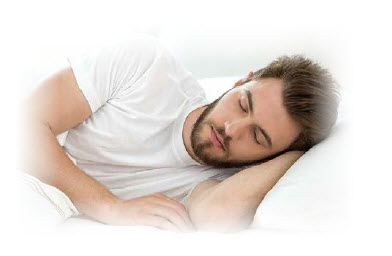 Most of our testosterone is produced when we are in a deep REM sleep. This is why our Testosterone levels peak when we wake up and are lowest right before we sleep. It is also one of the reasons behind “Morning Wood.” If you do not experience Morning Wood consistently, you should contact Hormone Therapeutics to learn about and get tested for low T.
Most of our testosterone is produced when we are in a deep REM sleep. This is why our Testosterone levels peak when we wake up and are lowest right before we sleep. It is also one of the reasons behind “Morning Wood.” If you do not experience Morning Wood consistently, you should contact Hormone Therapeutics to learn about and get tested for low T.
If you do not get enough deep quality sleep, your body will not produce testosterone needed for optimized health. University of Chicago researchers found young, healthy and virile men who got less than five hours a night of sleep for just week had 10-15% lower testosterone levels than when they were fully rested.
Another study measured testosterone levels in the morning and showed that the men who slept for 4 hours had an average testosterone level of 200-300 ng/dl. Comparatively, men who slept for 8 hours had average testosterone levels of 500-700 ng/dl.
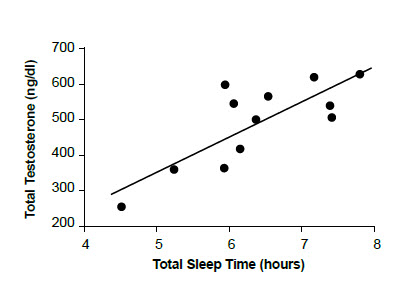 Not only does sleep increases testosterone, but it is also critical in managing cortisol. Cortisol is a stress hormone that is very destructive to testosterone levels when in excess. Make sure to focus on and improve the quality of your sleep. Reduce exposure to blue light in the evening, turn off your computers and cell phones at night, avoid caffeine in the afternoon and evenings, and take warm showers before bed.
Not only does sleep increases testosterone, but it is also critical in managing cortisol. Cortisol is a stress hormone that is very destructive to testosterone levels when in excess. Make sure to focus on and improve the quality of your sleep. Reduce exposure to blue light in the evening, turn off your computers and cell phones at night, avoid caffeine in the afternoon and evenings, and take warm showers before bed.
Sleep Increases Testosterone: How to Improve Sleep
- Sleep in complete darkness. No nightlights or glowing alarm clocks.
- Close wi-fi networks to shut down electromagnetic frequency waves
- Get exercise during the day. Melatonin can help as the hormone secreted by the pineal gland to bring on sleep and reset your body clock.
- Sleep in the cold . . . and naked! For centuries we slept in the cold and our bodies adapted to this natural state and testicles produce optimally when they are colder than your body temperature (why boxers are better than briefs).
- No computer or smart phone bright displays before bed and no blue lights. The blue light in many electronics impairs the pineal glands ability to function optimally.
- Simple carbs an hour or two before bed increases insulin levels which increases energy temporarily before you crash.
- Quality proteins, prior to sleep, and amino acids like L-tryptophan increases melatonin production during sleep.

Hormone Therapeutics aims to help people looking to improve and optimize their health through natural means or through the guidance of our physicians.
Don’t miss out our free weekly tips and news on Low T, hormone balancing, healthy living, nutrition and a lot more.
Want more?

Sign up today and Get our ebook, ‘Naturally Increase Your Testosterone Levels’ absolutely FREE.
How Sleep Increases Testosterone
Saleamp Design December 2nd, 2016
Posted In: Health & Wellness
Tags: amino acid, blackout, blue light, body clock, body temperature, cortisol, darkness, deep sleep, insulin, L-tryptophan, light, melatonin, morning erection, phone, pineal gland, protein, regenerative sleep, REM sleep, rest, sleep, Sleep Increases Testosterone, stress, testicles, testosterone therapy
How does Testosterone Affect Sexual Health?
Can testosterone improve sexual health?
Many factors fuel the sexual health of men as well as their sexual performance, ability to perform and changes in their ability to function as they once could. Low testosterone plays a significant factor in all of these and treating Low T can improve interest in sex, sexual function and sexual performance.
The Effects of Low T on Sexual Health
While we do understand that testosterone production comes from a healthy HPA Axis, or communication between your Hypothalamus, Pituitary Glands, Adrenals and Testicles, science still does not understand exactly how testosterone improves sexual health or performance. As you probably noticed in High School, College or amongst your friends, there is no normal level of sexual interest amongst men or women.
Like your testosterone levels, it peaks around 19 and usually slowly declines for the rest of your life. Each person takes a different path, however, and declining sexual interest is typically tied to declining testosterone levels. These levels can follow a steady decline, or can be accelerated by health issues, stress, poor sleep and even by keeping sexually active. Many men can lose sexual interest at normal testosterone levels or maintain sexual health even at low testosterone levels but as testosterone levels get depleted it will universally effect sexual interest and performance.
One study of Men in the NE of the US showed 11% of men had a lack of sex drive. The researchers also found 28% of men with low testosterone levels had a low libido which means that men with low testosterone levels were 256% more likely to have low sex drive or low libido. The average age of the study participants was 47.
Low Testosterone and Erectile Dysfunction

Erectile Dysfunction, or ED, can be caused by many health problems including low testosterone, atherosclerosis (hardening of the arteries), diabetes, high blood pressure and high cholesterol. Those last three items all cause hardening of the arteries. If they are damaged, the penis has difficulty dilating and bringing sufficient blood flow required for an erection. Testosterone therapy can lead to increased libido and interaction and connection between the brain and penis.
Viagra is an example of an oral PDE5 inhibitors that encourage an increase in nitric oxide which dilates the blood vessels and encourages more blood flow to the penis. Three potent selective PDE5 inhibitors (sildenafil (Viagra; Pfizer), tadalafil (Cialis; Lilly), and vardenafil (Levitra; Bayer)) are currently available. Testosterone therapy will often increase the libido and sexual function to erase Erectile Dysfunction, but often our physicians will prescribe a combination with PDE5 inhibitors as well.
Studies are showing that men with classic hypogonadism, or low testosterone, have a reduced response to PDE5 inhibitors and see a significant response improvement with Testosterone Therapy. For patients who fail to see ED improvement following TRT and PDE5 inhibitors we can prescribe and test the direct injectable Trimix.
The Connection of Testosterone Levels and Sexual Health
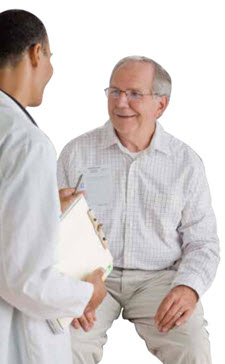 While this sounds like a juvenile sex joke, we are now seeing that lowered testosterone levels lead to a decreased sex life, but that a decreased sex life also can lower ones testosterone levels in a study at the University of Sydney in Australia.
While this sounds like a juvenile sex joke, we are now seeing that lowered testosterone levels lead to a decreased sex life, but that a decreased sex life also can lower ones testosterone levels in a study at the University of Sydney in Australia.
Researchers followed 1,700 men over the age of 70. The study asked questions and measured a number of things. The study tracked the ability to keep and maintain an erection. It measured the frequency that sexual activity led to ejaculation (through masturbation or sexual intercourse). The study also tracked libido and sexual health versus earlier times in their lives.
During the study, all of the men had blood tests regularly taken and the following tests measured: Total Testosterone, Free Testosterone, Estrogen, SHGB and some other hormones.
Researchers discovered a 10% reduction in testosterone levels led to a noticeable decrease in sexual activity but no change in the number of erections. Another study showed that testosterone levels increased on night after sexual activity without any increase on nights where there was no sexual activity. Physicians are concerned that a lack of sexual activity can accelerate low testosterone.
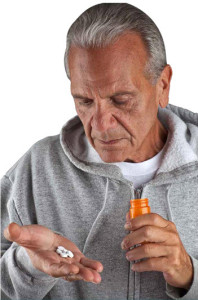 A further study showed that men taking Cialis had higher testosterone levels than men taking Viagra. Both drugs are PDE5 inhibitors to boost nitric oxide and blood flow to the penis. Cialis, however, last 36 hours for most people rather than 6-8 hours. Cialis users typically have more intercourse over this extended time period.
A further study showed that men taking Cialis had higher testosterone levels than men taking Viagra. Both drugs are PDE5 inhibitors to boost nitric oxide and blood flow to the penis. Cialis, however, last 36 hours for most people rather than 6-8 hours. Cialis users typically have more intercourse over this extended time period.
The researchers concluded that “as it is unlikely that the two drugs have a different direct effect on the pituitary-testis axis, this effect is probably due to the higher frequency of full sexual intercourse.”
A Chinese study observed a group of men that abstained from ejaculation for one week and had their testosterone levels tested each day. Research showed that abstaining for 6 days had no effect on testosterone levels, however, on the seventh day the testosterone levels surged to 145.7% of the baseline then plummeted on the 8th day.
The researchers believe the testosterone surge was the result of a negative feedback suppression of Luteinizing hormone (LH secretion) which is essential for testosterone production.
Hormone Therapeutics aims to help people looking to improve and optimize their health through natural means or through the guidance of our physicians.
Don’t miss out our free weekly tips and news on Low T, hormone balancing, healthy living, nutrition and a lot more.
Want more?

Sign up today and Get our ebook, ‘Naturally Increase Your Testosterone Levels’ absolutely FREE.
How does Testosterone Affect Sexual Health?
Saleamp Design November 15th, 2016
Posted In: Low T Info
Tags: atherosclerosis, Bayer, blood flow, boner, Cialis, diabetes, dilates, ED, erectile dysfunction, erection, high blood pressure, high cholesterol, hypogonadism, inhibitors, intercourse, Levitra, LH, LH secretion, libido, Lilly, Lutenizing hormone, nitric oxide, PDE5, PDE5 inhibitors, penis, Pfizer, pituitary, sex drive, sexual health, sexual performance, sildenafil, tadalafil, testes, testicles, testosterone level, testosterone therapy, trimix, TRT, vardenafil, Viagra
Here’s What You Should Know about Testosterone Production
 Testosterone is important as it maintains our physical strength, our focus, and our mood, but do you an idea about testosterone production? How is it made?
Testosterone is important as it maintains our physical strength, our focus, and our mood, but do you an idea about testosterone production? How is it made?
It’s not just an academic question. An understanding of how our bodies produce testosterone leads to an understanding of what might cause our bodies to stop producing enough of the stuff, and understanding a problem is the first step to solving it.
Testosterone Production 101 – The Three Types of Testosterone
In essence, testosterone is a steroid hormone. The changes and benefits it triggers in the body are detailed right over here. The average male human creates 7mg of testosterone per day, but there are actually three different types. Not all of it is usable by the body, or at least not to produce the effects you’re probably looking for.
 Free Testosterone
Free Testosterone
Free testosterone is so named because it has no attached proteins. It’s free to float through the bloodstream, and isn’t bonded to any other molecules. Free testosterone is the type of testosterone that has all those great physical and mental benefits, because it’s able to roam our bodies and activate receptors in various cells. Even though this is the kind of testosterone we think of as the most beneficial, it has the smallest concentration of the three. It only comprises about 2%-3% of our total testosterone levels. Everything we do for testosterone production is really meant to increase free testosterone, but the best way to do that is to raise our overall levels.
 SHBG-Bound Testosterone
SHBG-Bound Testosterone
This type of the male hormone makes up about 40%-50% of our total testosterone levels. It’s bound to SHBG (sex hormone-binding-globulin), which is a protein produced in the liver. It regulates the amount of free testosterone in the body. SHBG-Bound Testosterone is what’s known as “biologically inactive”, meaning it doesn’t actually have any other effect in our bodies beyond helping regulate our total levels. This type of T doesn’t have harmful effects either, but it is why a man might test with adequately high testosterone levels but still experience the symptoms of testosterone deficiency.
 Albumin-Bound Testosterone
Albumin-Bound Testosterone
This makes up the remainder of our total testosterone. It’s bound to the protein albumin, which is also produced in the liver. Its function is to stabilize fluid volumes between our cells. Albumin-Bound Testosterone is also biologically inactive, but unlike the SHBG-Bound variety, its bond can be broken. That converts it back into free testosterone, making the stuff sort of testosterone reserve supply.
About 95% of our testosterone is produced in the testicles. The rest is made in our adrenal glands, which is why the hormone is present in women as well. For men, though, it’s almost entirely the testicles.
It’s a pretty complex process that results in the male hormone. Learn about testosterone production in this basic rundown:
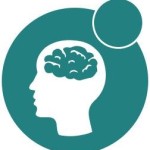 The hypothalamus (part of the brain) secretes gonadotropin-releasing hormone. This stuff loops around to the back of the brain and hits the pituitary gland.
The hypothalamus (part of the brain) secretes gonadotropin-releasing hormone. This stuff loops around to the back of the brain and hits the pituitary gland.
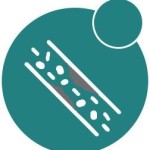 The pituitary gland receives the gonadotropin-releasing hormone, and responds by producing two more hormones. Follicle-stimulating hormone (FSH) and luteinizing hormone (LH). Both of these natural chemicals enter the bloodstream and make their way to the testicles.
The pituitary gland receives the gonadotropin-releasing hormone, and responds by producing two more hormones. Follicle-stimulating hormone (FSH) and luteinizing hormone (LH). Both of these natural chemicals enter the bloodstream and make their way to the testicles.
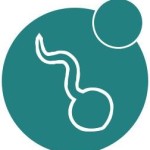 Once they’ve arrived down there, the FSH and LH do two different things. FSH initiates sperm production (important!), while LH kicks off testosterone production (just as important!)
Once they’ve arrived down there, the FSH and LH do two different things. FSH initiates sperm production (important!), while LH kicks off testosterone production (just as important!)
 The actual cells that create the testosterone are called Leydig cells. They work by converting cholesterol into testosterone. That cholesterol literally comes from the bloodstream, which is why a healthy level of T can actually improve your heart health. It’s also the reason eating eggs is so beneficial to testosterone levels!
The actual cells that create the testosterone are called Leydig cells. They work by converting cholesterol into testosterone. That cholesterol literally comes from the bloodstream, which is why a healthy level of T can actually improve your heart health. It’s also the reason eating eggs is so beneficial to testosterone levels!
 During testosterone production, it’s released by the testicles into the bloodstream. Most of the stuff attaches to SHBG and albumin, nullifying its effects. It’s the small amount that remains free that aids our strength, focus, sexual drive, and all the other great benefits of testosterone.
During testosterone production, it’s released by the testicles into the bloodstream. Most of the stuff attaches to SHBG and albumin, nullifying its effects. It’s the small amount that remains free that aids our strength, focus, sexual drive, and all the other great benefits of testosterone.
Here’s a handy chart of the HPA-axis:
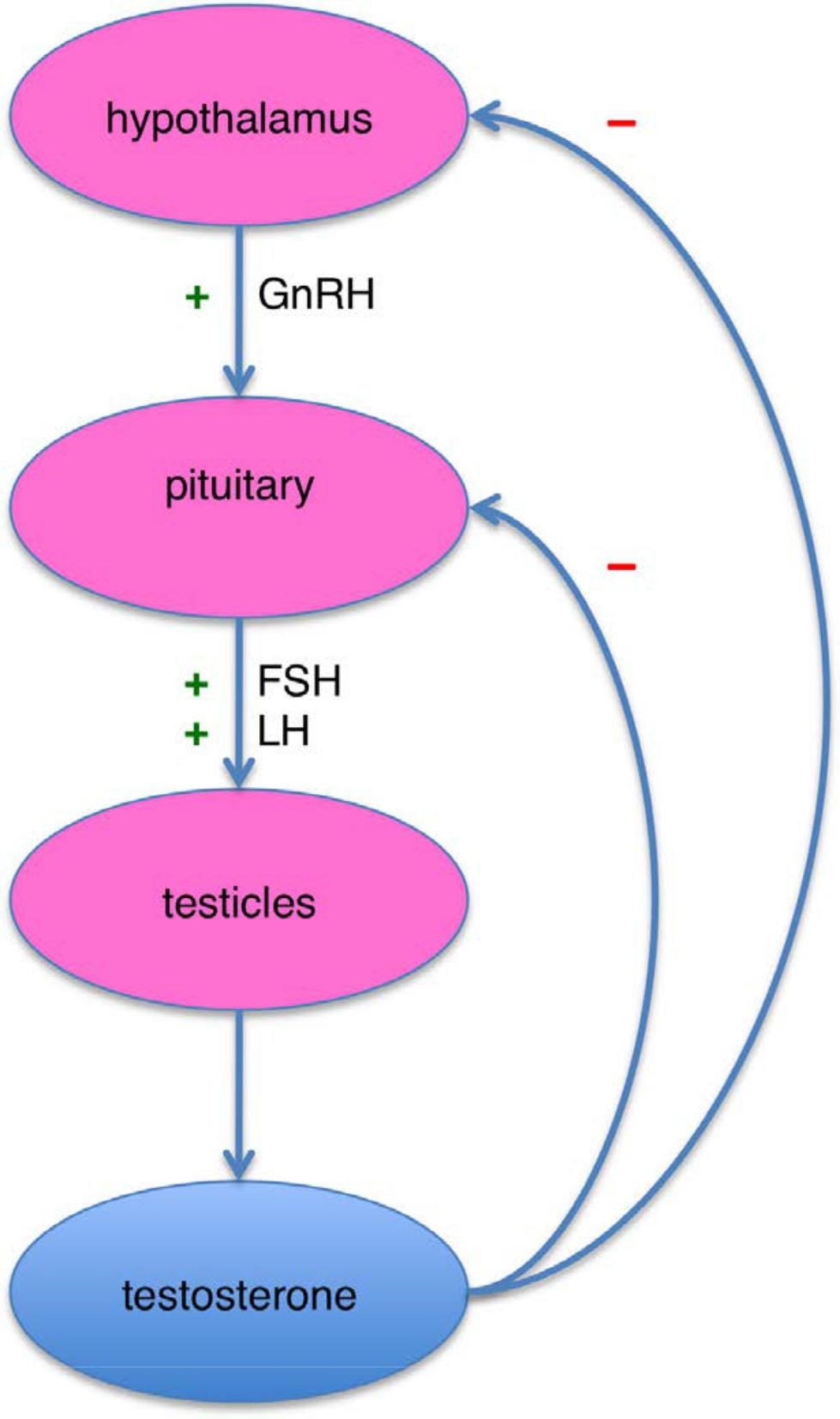
Image source: Wikipedia
In essence, testosterone is a steroid hormone. The changes and benefits it triggers in the body are detailed right over here. The average male human creates 7mg of testosterone per day, but there are actually three different types. Not all of it is usable by the body, or at least not to produce the effects you’re probably looking for.
Hormone Therapeutics aims to help people looking to improve and optimize their health through natural means or through the guidance of our physicians.
Don’t miss out our free weekly tips and news on Low T, hormone balancing, healthy living, nutrition and a lot more.
Want more?

Sign up today and Get our ebook, ‘Naturally Increase Your Testosterone Levels’ absolutely FREE.
Here’s What You Should Know about Testosterone Production
Saleamp Design November 4th, 2016
Posted In: Low T Info
Tags: albumin, biologically available, Follicle Stimulating Hormone, free testosterone, FSH, GnRH, growth hormone, HPA axis, hypothalamus, LH, low t, Luteinizing Hormone, pituitary, sex hormone-binding-globulin, SHBG, testicles, testosterone, testosterone levels, testosterone production
HCG – Human Chorionic Gonadotropin
Human Chorionic Gonadotropin, commonly called HCG, is an important hormone for sexual development. While it is more commonly thought of in conjunction with women as it affects fertility and ovulation, it also plays an important role in Hormone Replacement Therapy for men. HCG is a secretogue that naturally causes your body to produce more testosterone and sperm. Because of this, many HRT specialists will prescribe it for men for fertility purposes as well as encouraging the body to continue to produce testosterone.
HCG – Human Chorionic Gonadotropin
Saleamp Design March 16th, 2015
Posted In: Low T Info, Testosterone Therapy, Uncategorized
Tags: Cialis, fertility, HCG, hormone replacement therapy, Human Chorionic Gonadotropin, increase their natural levels, Leydig cells, natural production of testosterone, produce more testosterone, sexual development, sperm, testicles, testosterone, Tri-Mix, Viagra


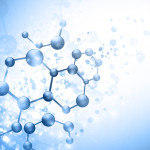 Free Testosterone
Free Testosterone SHBG-Bound Testosterone
SHBG-Bound Testosterone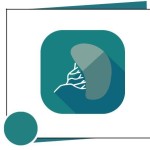 Albumin-Bound Testosterone
Albumin-Bound Testosterone